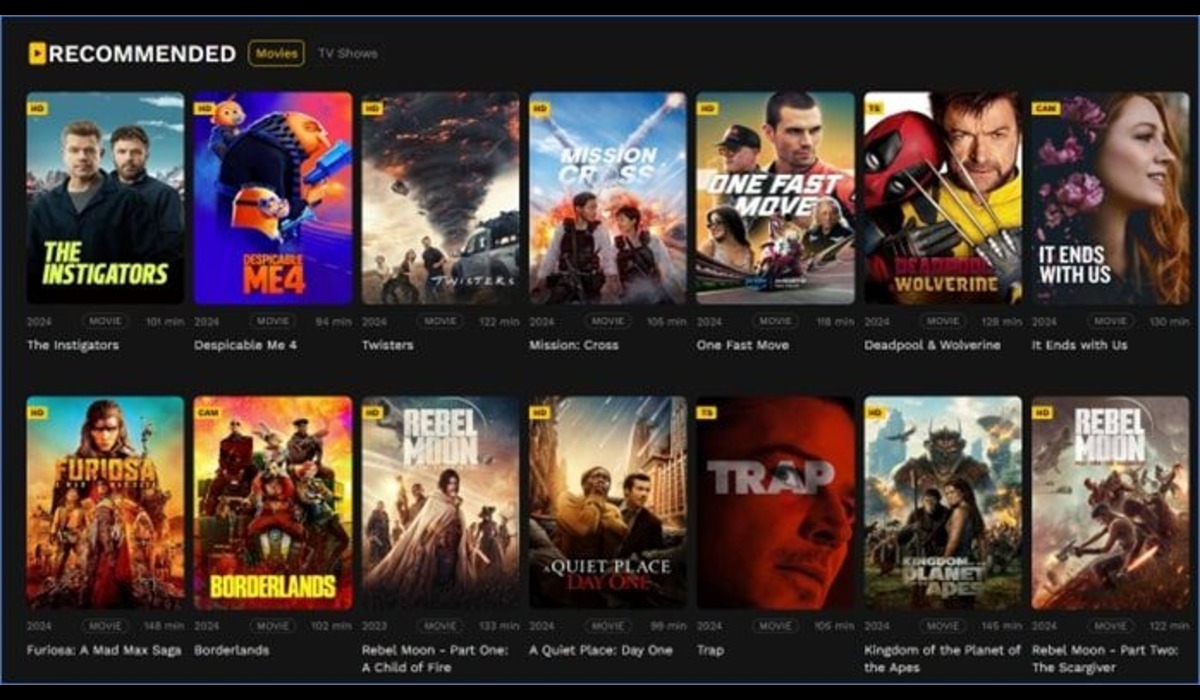Introduction
m4ufree,The evolution of online entertainment has given rise to a multitude of platforms for streaming movies and TV shows. In recent years, legitimate services such as Netflix, Hulu, and Disney+ have established themselves as the primary source of high-quality, legal content. However, alongside these services, a number of unauthorized streaming websites have emerged, such as M4uFree. M4uFree is a website that allows users to access a wide variety of movies and TV shows for free, and has gained considerable popularity. In this article, we explore m4uFree and analyze how it works, the appeal of free streaming, the risks involved, and the legal and ethical implications of using such a platform.
The Rise of M4uFree
Launched in the 2010s, M4uFree quickly became one of the most visited free streaming websites. It allows users to watch or download movies and TV shows without subscription or payment. The platform caters to a variety of tastes, providing access to blockbuster movies, independent films, and even TV series across multiple genres. M4uFree offers an easy-to-use interface that organizes content into categories such as genre, release year, and IMDb rating, making it easy for viewers to find what they’re looking for.
For users, M4uFree’s appeal is its convenience. Unlike legal streaming services, which may require a monthly subscription, or movie theaters, which charge for tickets, M4uFree offers free, instant access to entertainment. In addition, it also offers content from multiple regions, including movies that are not available on local streaming services. This has allowed the site to gain a global user base, especially in countries where streaming platforms are limited or expensive.
How M4uFree Works
M4uFree works similarly to other unauthorized streaming websites. The site itself does not host the content it offers. Instead, it acts as a third-party link aggregator. Once a user selects a movie or TV show, M4uFree redirects the user to an external server that hosts the video content. These servers are usually located in countries with lax copyright law enforcement, allowing them to distribute movies and TV shows without the permission of the content creators.
This decentralized hosting model helps M4uFree and similar platforms avoid legal scrutiny. Because the website does not directly store any content, it is difficult for authorities to target the site itself. However, this also poses many security risks to users, as they are often redirected to unknown sites that may host malware or attempt phishing attacks.
In terms of monetization, M4uFree relies on advertising. Users frequently encounter pop-up ads, banner ads, and redirects when trying to stream content. These ads often lead to questionable websites that may pose security risks. In some cases, malicious software may be inadvertently downloaded to users’ devices through these ads, putting personal data at risk.
The Appeal of Free Streaming Platforms
The appeal of M4uFree and similar websites can be attributed to several key factors:
Free Access: Perhaps the most obvious appeal of M4uFree is the lack of subscription fees. With the rise of paid streaming services, some consumers are experiencing “subscription fatigue,” where the cumulative cost of multiple services becomes a burden. M4uFree offers a way to avoid these costs entirely.
Wide selection: M4uFree offers access to a vast library of content, including new releases, popular TV shows, and even lesser-known movies. This level of selection rivals and in some cases exceeds that of paid streaming services.
Instant availability: M4uFree allows users to watch movies and TV shows as soon as they become available, often within days of their theatrical release or television broadcast. The lack of geographical restrictions and immediate availability increase the platform’s appeal.
No registration required: Unlike many legal streaming platforms, M4uFree does not require users to register or provide any personal information. This further simplifies the content access process and provides a degree of anonymity.
Risks of using M4uFree
The benefits of M4uFree may seem attractive, but they come with significant risks. Users of unauthorized streaming platforms are exposed to a variety of potential legal and personal dangers.
Legal implications: M4uFree violates intellectual property laws by providing access to copyrighted content without authorization. In many countries, it is illegal to access or distribute copyrighted material without authorization. While website operators are often the primary targets of legal action, users of these sites may also face consequences. Internet service providers (ISPs) monitor user activity and, in some cases, may issue warnings or fines to users who transmit pirated content.
Cybersecurity threats: One of the biggest risks of using M4uFree is the possibility of malware and phishing attacks. The website frequently redirects users to third-party sites, some of which may be malicious. Clicking on ads or downloading content can infect users’ devices with viruses, ransomware, and spyware. These types of malware can cause theft of personal data, financial losses, and damage to computer systems.
Low-quality and unreliable streaming: Because M4uFree relies on third-party servers, content quality is often unstable. Users may encounter buffering issues, low-resolution videos, or broken links. Additionally, the user experience is often marred by intrusive ads and popups, making streaming frustrating and unreliable.
No customer assistance: Unlike legal streaming services, M4uFree does not offer its users any customer assistance or support if they experience issues. This can leave people stranded if they experience technical issues or become victims of scams.
Legal and ethical considerations
The legality of using websites like is clear. Accessing or distributing copyrighted material without the permission of the rights owner is a violation of intellectual property law. By using, people may inadvertently engage in copyright infringement, undermining the entertainment industry and the artists, creators, and workers who contribute to it.
Ethical considerations regarding are equally important. When users choose to stream movies and TV shows for free rather than paying for them, it takes away revenue from content creators. This affects everyone involved in the production process, from actors and directors to editors, designers and studio employees. Piracy reduces the potential profits that legitimate streaming services and film studios rely on to fund future projects, which may result in fewer movies and shows being produced over time.
For some users, the ethical dilemma is less clear. In countries where legal streaming services are unavailable or prohibitively expensive, and similar sites are used to provide access to content that would otherwise be inaccessible. However, even in these cases, the risks associated with legal and personal hacking should not be ignored.
Piracy and the Future of Streaming
The future of online piracy is likely to evolve as both technology and legal frameworks adapt to changing conditions. Sites like will likely continue to exist, but efforts to shut them down by governments, content creators and anti-piracy organizations will likely continue.
One possible solution to the problem of online piracy is for legitimate streaming services to become more accessible and affordable. Legal platforms can reduce the demand for piracy by offering competitive prices and expanding availability in underserved areas. Additionally, public awareness campaigns that educate users about the risks and consequences of using illegal streaming websites could help discourage the use of platforms like
Conclusion
M4uFree represents both the appeal and the risks of free online streaming. The platform offers users free access to a vast library of movies and TV shows, but it also poses significant legal, ethical, and personal dangers. As the fight against online piracy continues, both users and the entertainment industry must navigate the complex landscape of digital media consumption while balancing convenience and responsibility.











